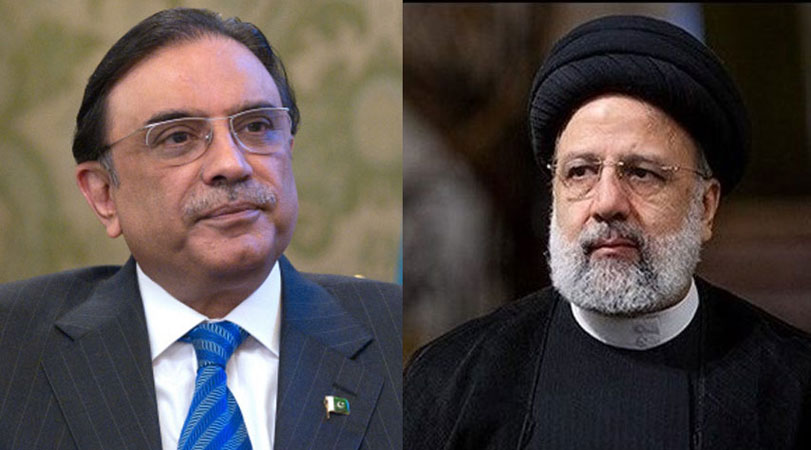 President Asif Ali Zardari, in a phone call with his Iranian counterpart Ebrahim Raisi, assured that Pakistan would continue to work with Iran in all areas of mutual interest to further bolster bilateral cooperation.
President Asif Ali Zardari, in a phone call with his Iranian counterpart Ebrahim Raisi, assured that Pakistan would continue to work with Iran in all areas of mutual interest to further bolster bilateral cooperation.
The president also underlined the need to enhance the exchange of information to overcome the security challenges being faced by the two countries. During the phone call, President Zardari also exchanged greetings on the occasion of Eidul Fitr.
Zardari offered his heartfelt condolences and sympathies to the Iranian leadership and the bereaved families who lost their loved ones in the Israeli attack on the Iranian embassy in Damascus.
He also expressed his concern over the humanitarian crisis and the genocide being committed by the Israeli forces and called for an immediate ceasefire in Gaza.
The president extended an invitation to the Iranian President to visit Pakistan and also wished the Raisi and his family continued well-being, health and happiness.
The Iranian president is expected to undertake an official visit to Pakistan in the third week of April as part of efforts by the two neighbours to remove mistrust after the two exchanged missiles in January.
There is no official word yet from either side about the exact dates of the Iranian president’s visit but sources said Raisi would be in Islamabad on April 22. This will be the first visit by any head of state to Pakistan since the new government took charge after the February 8 elections.
The visit is part of ongoing efforts by the two countries to deepen their cooperation that in January was threatened by the missile exchanges.
Iran launched missile strikes in Balochistan on January 16 in an unprecedented move to violate the sovereignty of Pakistan. Iran claimed it targeted the hideouts of terrorists. Pakistan denied the claim and retaliated with its own strikes inside Iran, bringing the two neighbours on the verge of potential war.
However, tensions de-escalated quickly after high-level contact was established between the two countries. Within days of the missile exchanges, the Iranian president vowed to travel to Islamabad and both sides agreed to restore diplomatic ties and set new terms of engagements to avoid future escalations.